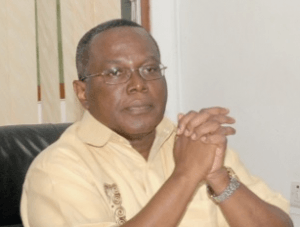Introduce laws to compel governments to implement long-term plans – PEF

Nana Osei Bonsu, Chief Executive Officer of Private Enterprises Federation has called for constitutional provisions that would bind successive governments to implement long-term national development plans.
He said the absence of the law has paved way for previous governments to abandoned developmental projects and implement their own political manifestoes to the detriment of the national interest.
Mr Bonsu made the call during a panel discussion in Accra on the Ghana Journalists Association programme dubbed: “Business Advocate” on Ghana Television.
The programme is supported by BUSAC Fund, Denmark Embassy, United States Agency for International Development and the European Union.
He said the provision must spell out punitive sanctions to governments that go contrary to laid-down directives to serve as a deterrent as well as ensure holistic national development.
Speaking on the topic: “The Need for the Country’s Long-Term Development,” Mr Bonsu said the proposed 40 year development plan should be private sector oriented and give opportunities to private enterprises to complement government’s efforts.
He noted that the provisions that bound all successive governments would ensure that the nation’s resources, budgets and government programmes, projects and initiatives were all re directed towards realizing the goals of the Plan.
Mr Bonsu said the proposed plan must encompass the views of all stakeholders, including those at the grassroots, saying that it was critical to have all-inclusive views.
Dr Nii Noi Thompson, Director General of the National Development Planning Commission said the Commission had proposed a 40-year time horizon, starting from 2018 and ending in 2057, when Ghana would be celebrating its 100th independence anniversary.
“The framework would entail 10 four-year medium-term plans by successive governments that will end in 2057, as well as 10 national elections, beginning with the election of year 2020, and ending with the 2056 election”, he added.
He stated that the proposed framework should be subjected to 4 decennial or 10-year reviews by Parliament.
Dr Thompson said the operational plans will be monitored by the Commission through its Annual Progress Reports, as well as the sitting President’s constitutionally mandated State of the Nation Address.
He said the Commission decided that the Directive Principles of State Policy, which were accepted by all Ghanaians as an integral part of the 1992 Constitution, provided enough broad guidelines for the preparation of a high-level plan or framework that would be long-term in nature.
He added that the framework would be binding on all successive governments but flexible enough to allow each government to prepare its own operational or medium-term plans, based on its manifesto, for the attainment of the Vision, Goals and Objectives of the framework.
The framework will also be informed by various existing laws, policies, and reports, as well as international frameworks, such as the 15-year Sustainable Development Goals of the United Nations and the 50-year Agenda 2063 of the African Union.
Dr Thompson explained that this was critical because as a member of the UN and AU, Ghana was required to include the goals of their frameworks into its own national development plans and report on them periodically.
Mr Alfred Kwasi Opoku, Vice President of the Ghana Institute of Planners lauded the Commission’s participatory views towards the proposed long-term development plan, adding that political parties’ manifestoes should be built from the country’s long-term plan.
Dr Emmanuel Akwetey, Executive Director of the Institute of Democratic Governance said the country should put human development at the centre its plans.
Source: GNA
